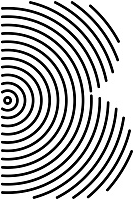Note / Day 2: Imitating Lucretius
In which the workshop is assigned a world-building exercise by way of Lucretius
TL;DR takeaway
One high-level concept can make a thousand minute decisions for you, but one thousand minute decisions never coagulate into a coherent, concise organizing principle.
The reading
Lucretius, Book II, with a focus on the two pages including and following this passage:
"For which cause, it must again and again be acknowledged that atoms decline a little from the straight course, though it need not be admitted that they decline more than the least possible space lest we should seem to imagine oblique motions, and truth should refute that supposition."
Basically, Lucretius has proffered the theory of atomic matter, then he goes on to expand on how atoms interact and thus create the world.
The exercise
In the words of instructor, playwright Erik Ehn:
Lucretius is a keen mind with a poetic sensibility trying to make sense of — everything (the nature of things).
In league with him, imagine a couple of guiding principles for organizing nature. Is nature the sum of what can be experienced by the senses? Is it a state of play? Is it unknowable?
Then catalog all of nature using various notations: write, draw, dance, sing a squirrel, an octopus, a sandwich...
Take on the impossible task of creating the encyclopedia of everything.
Stop when you're exhausted or when it's time to feed the squirrels.
My experience
For me, the key to this exercise was first finding a clear guiding principle. Once that came, everything else was fun and easy. I promise I won't belabor you often with my own writing exercise results, but for the sake of providing a second and more ludicrous example than the atomic theory of matter).
Sound is the "god" that willed all into being, but for no other reason that to build a world-sized instrument that would strum and thrum the forms of Sound into existence. Sound is sentient, and Its desire to become is what powers and motivates all life on earth. All of nature exists only because the Platonic forms of Sounds exist (and they are the only Platonic forms that "exist" so to speak).
This idea gave me the juice to free-write my way into a creation myth that would've never been written by any other means than this exercise. (It also provided the firepower for a kids' bedtime story more effective than Ambien. [I've never given my kids Ambien {Yet.}])
Using these techniques
I absolutely loathe the checklist version of world-building that seems especially popular among self-publishing influencers and first-time creative writing instructors. It's such a dead-feeling, fill-out-this-paperwork-then-the-doctor-will-see-you attempt that more provides a blueprint for a built world than a guide for building one's own world.
Starting with a guiding principle that's somehow different from the real world — even if only slightly — is so much easier and more fun. One high-level concept can make a thousand minute decisions for you, but one thousand minute decisions never coagulate into a coherent, concise organizing principle.
Why start with the cultural mores of a world-building project if you don't know what upstream cultural factor created said mores? While the guiding principle I used as an example above might be too far afield for most world-builders, one could approach it more conservatively.
One might, for instance, start with a story-world in which divorce is forbidden to the point of being unimaginable — so much so that it's not even a concept. Now just start populating this world, and you'll naturally find interesting contradictions and patterns to follow.
To learn more about how fiction and dramatic writers are inventing future forms, subscribe to Writers in the Metaverse.
